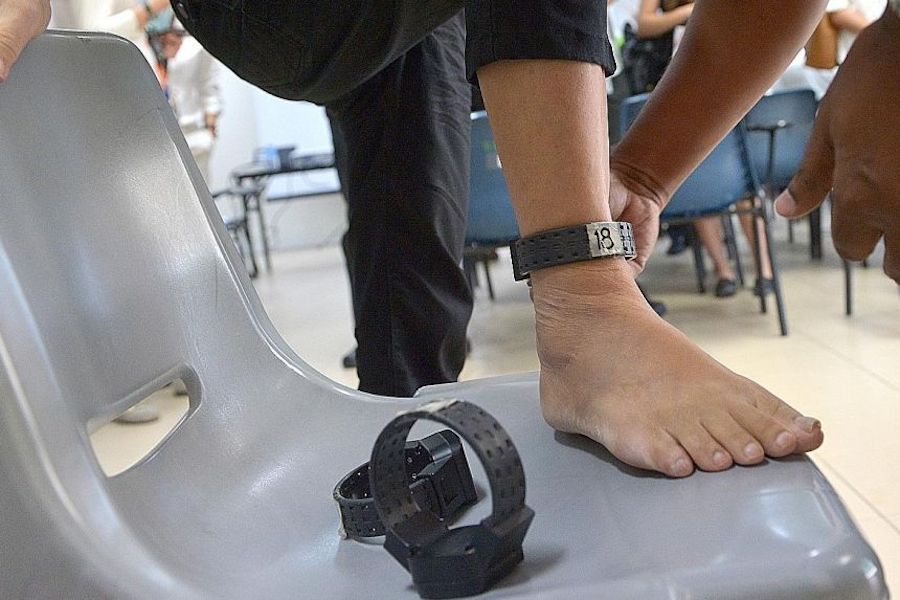By Choekyi Lhamo
DHARAMSHALA, Nov. 18: Dharamshala based rights group Tibetan Centre for Human Rights and Democracy (TCHRD) on Wednesday released a report concerning high-tech surveillance for former political prisoners upon their release, including 24-hour GPS ankle bracelets, which reportedly monitors movements and records conversations. This information is followed by a recent report by RFA Tibetan service that indicated these Tibetan dissidents are required to use government issued phones after their release and are forbidden to use phones of their own.
“China’s central propaganda department announced the launch of a crackdown on “illegal” online activities and fake news on August 4 this year. There has since been added scrutiny of online activities of Tibetans as was evident in the mass detention of Tibetans in Domda, Nagchu, Ngaba, and Dzachuka following mobile phone scanning in the following months,” TCHRD researcher Tenzin Sangmo told Phayul, adding that sharing information outside is often synonymous with “leaking state secrets” and “inciting separatism”.
TCHRD said that GPS trackers were used on political prisoners since 2014 in Qinghai Province, which includes the provinces of Kham and Amdo. These claims, although unverified, share similarities with the report of prisoners being given mobile phones upon their release with the sole purpose of tracking them. The report claimed that the Chinese leadership especially under Xi Jinping has transformed surveillance “resulting in the standard practice of monitoring individuals, referred to as “key persons”, deemed disruptive to the political and social stability of the Chinese state.”
Sangmo said that one of the most sophisticated data collection and analysis systems called the Integrated Joint Operations Platform (IJOP) was used by the Chinese government in June 2019 to determine suspicious activities in public, as reported by Human Rights Watch. “Chinese officials have collected the DNA samples of all residents of Chamdo (Ch: Qamdo) for its newly-established DNA database system to ‘fight crime’,” she said.
Most political prisoners are also required to serve an additional sentence called “deprivation of political rights”, ranging from a year to a lifetime depending on the severity of individual cases. The prisoners who have completed sentences are also compelled to report to the local office several times a month. “Many fundamental human rights such as the right to freedom of movement and travel, and freedom of expression are denied when serving this supplementary sentence,” the report further stated.
“Tibetans outside [in exile] might have to get more creative with our use of technology to circumvent the growing wall of online censorship and learn to unpack Chinese propaganda machinery and language to gain insights into the real situation on the ground,” Sangmo forewarned, emphasizing China’s rising techno-authoritarianism as a major global concern today.










